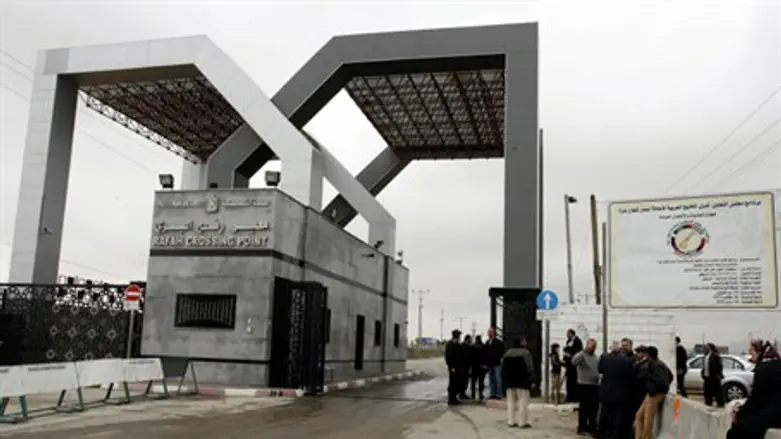
Hamas is blaming the Ramallah-based Palestinian Authority (PA), led by chairman Mahmoud Abbas, for the closure of the Rafah border crossing between Egypt and Gaza.
Speaking to Hamas’s Palestine newspaper on Sunday, Gaza's Deputy Minister of Interior Kamel Abu Madi called on those responsible for the closure of the Rafah crossing to open it on a regular basis.
He then claimed that the PA’s leadership is responsible for the closure of the Rafah crossing, saying that he had no information on the intention of the authorities in Egypt to open the crossing during the next few days.
Abu Madi said that the number of Gazans wishing to leave the enclave through the Rafah crossing is now about 25-30 thousand, and that priority is given to the sick, students and married women who have been cut off from their husbands.
The Hamas newspaper reported that Gaza expects that Egypt will open the Rafah crossing ahead of Eid al-Fitr, which marks the end of the month of Ramadan.
Egyptian authorities have kept the Rafah crossing virtually sealed since a terrorist attack in the Sinai Peninsula in October 2014, though they have temporarily reopened the crossing several times since that specific attack, the last time being earlier this month.
Sources in Egypt have revealed that Hamas terrorists had provided the weapons for the lethal October 2014 attack, which killed 30 soldiers, through one of its smuggling tunnels under the border to Sinai. Hamas denies the allegations.
After that attack, Egypt began creating a wide buffer zone along the Gaza border, in a bid to destroy the hundreds of smuggling tunnels Cairo says are used by Palestinian Arabs to deliver weapons to jihadists in the Sinai.
The Gaza-based Hamas government has been trying to make amends with Egypt, and a delegation headed by Hamas political bureau member Mousa Abu Marzook recently held talks in Egypt aimed at normalizing the relations.
Following the visit, reports emerged that Hamas agreed to Egypt’s demands, namely that it would not interfere in Egyptian affairs, and will supervise and control the borders with Gaza, while fighting all extremists in Gaza and stopping them from infiltrating Egypt.